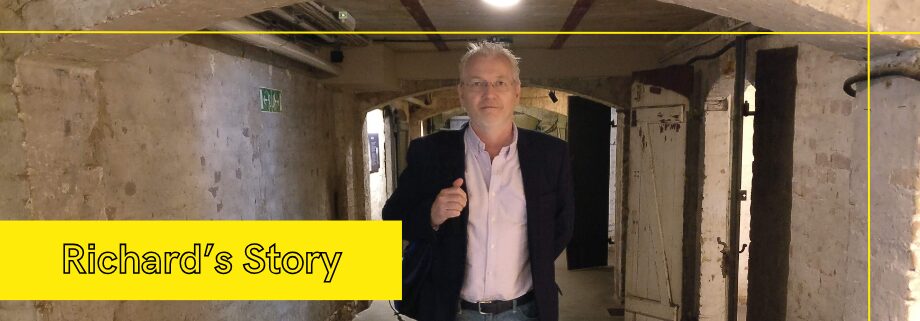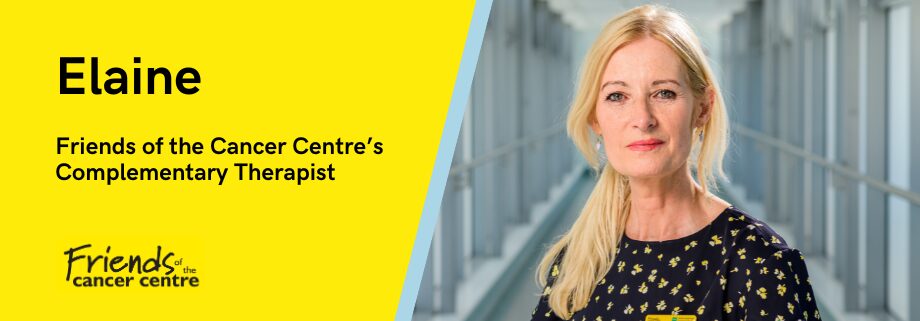- July 1, 2021
- 12:15 pm
World-first clinical trial shows improved survival for prostate cancer which has spread to the bones

A world-first clinical trial led by Queen’s University Belfast, with funding from Friends of the Cancer Centre, has shown how a new combination of radiotherapies has been successful, demonstrating excellent tolerability in men with very advanced prostate cancer and slowing the progression of prostate cancer which has spread to the bones, potentially improving overall survival.
This is the first time that this combination of therapies has been tested in a clinical trial and has been proven to be safe and tolerable in this population of men with advanced prostate cancer, which accounts for around 10 percent of all prostate cancer patients at diagnosis.
The ADRRAD trial results have been published today (Wednesday 30 June) in leading cancer journal Clinical Cancer Research.
Prostate cancer is the most common cancer in men in the UK. More than 47,500 men are diagnosed with prostate cancer every year – 129 men every day. In Northern Ireland, approximately 276 men die from the disease every year.
Men with advanced prostate cancer are normally treated with hormone therapy, which aims to shrink a tumour by limiting the amount of testosterone reaching the cancer cells. This new approach was the first to combine two existing forms of radiotherapy – Radium 223, an intravenous, bone-seeking radioactive drug which targets the prostate cancer in the bones, and Volumetric Modulated Arc Therapy (VMAT) (very high-tech Radiotherapy) to target prostate cancer cells in the prostate gland and pelvic lymph nodes.
To conduct the trial, 30 patients aged between 40 and 80 received this new combined therapy over the past four years.
Research lead, Professor Joe O’Sullivan, Professor of Radiation Oncology from the Patrick G Johnston Centre for Cancer Research (PGJCCR) at Queen’s University, said:
“This is the first trial of its kind anywhere in the world. We have found that combining these two forms of radiotherapy is safe and we have seen some indications that the approach may prove more effective than existing hormone treatment in targeting prostate cancer cells at multiple sites. We will proceed to a large, randomized trial to test the treatment against the current gold standard.
“Conducting this trial has been a huge team effort involving research doctors, radiographers, nurses, physicists, and clinical trial professionals at the Northern Ireland Cancer Trials Centre. We are so grateful to the patients and their families for taking part in this trial.
“This trial is a huge global success in the fight against prostate cancer, which is the most common type of cancer among men in the UK and is life-changing and life-saving research.”
David Livingstone, a patient who took part in the clinical trial, shares his story:
“In 2016, I was diagnosed with aggressive prostate cancer which had spread to my bones and my lymph nodes. My PSA level was 3495, one of the highest ever seen. I was given six months to a year to live so the future looked pretty grim.
“I was invited to join the research programme led by Professor Joe O’Sullivan. It involved 37 sessions of radiotherapy and six months of Radium injections. After the first few sessions, I started to feel weak, and my energy levels dropped considerably. I have a hormone implant every twelve weeks, and a calcium infusion to help strengthen my bones. Over five years on, with other medication which I take every day, I can now enjoy a pretty normal life. Although I’ve low energy and am limited to what I can do; without this breakthrough, I simply would not be here today.
The research was conducted by the Academic Prostate Cancer Team at the Northern Ireland Cancer Centre, Belfast as part of the Prostate Cancer UK Movember Centre of Excellence (FASTMAN CoE) in the PGJCCR. The FASTMAN CoE is an ongoing partnership between Queen’s and the University of Manchester.
The research was designed and conducted in partnership with the Belfast Health and Social Care Trust and the Northern Ireland Cancer Centre and was funded by Movember, Prostate Cancer UK, and Friends of the Cancer Centre.
Dr Phil Turner, Consultant Oncologist and formerly the Clinical Research Fellow on the ADRRAD trial, added:
“Friends of the Cancer Centre very generously funded my PhD fellowship which facilitated my work as the junior investigator on the ADRRAD trial. It’s tremendously rewarding to see how the support of a local charity allowed us to pioneer this world-first research in Northern Ireland.”
Colleen Shaw, Chief Executive of Friends of the Cancer Centre, said:
“As a local charity, Friends of the Cancer Centre is incredibly proud to support this groundbreaking clinical trial through our partnership with Queen’s University Belfast. Working alongside Professor O’Sullivan, several staff funded by the charity have been involved in the trial, which is showing very promising results and could pave the way for a new approach to how we treat men with advanced prostate cancer.
“After an extremely challenging year, it is really encouraging to see such positive news which highlights the progress that continues to be made in prostate cancer research. Progress which will undoubtedly give hope to many men not only in Northern Ireland but across the world.”
The research will now be taken forward in a large, randomized trial with a greater number of patients with the aim of testing this treatment schedule against the current standard of care.
More news...

Applegreen Northern Ireland raise £280K to support young people with cancer
Applegreen Northern Ireland raise £280K to support young people with cancer Since partnering with Friends of the Cancer Centre in 2018, Applegreen Northern Ireland have

Richard’s Story
March is Prostate Cancer Awareness Month, which remains one of the most commonly diagnosed cancers amongst men in Northern Ireland. Friends of the Cancer Centre

In Focus – Elaine, Complementary Therapist
This is World Complementary Therapy Week, highlighting the importance of taking care of our own wellbeing. Friends of the Cancer Centre proudly funds four complementary





